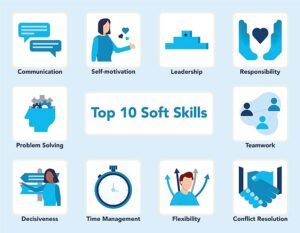By Elena Pacetti and Anita Macauda, University of Bologna
Scientific literature and recent European recommendations recognize as a priority educational actions to help young people acquire and develop 21st century skills and competencies through all forms of learning (formal, non-formal and informal) to meet the needs of society and the labor market. However, much of this learning remains unrecognized, with specific reference to those who are excluded from formal learning opportunities.

School and university leavers, NEETs, trainees, young people enrolled in the employment agency or in vocational training courses are at risk of marginalization and exclusion and need to be engaged in projects where they can express their potential and participation.
Soft skills are basic skills, or fundamental skills or cross-cutting skills, which we can define as "skills that enable individuals to adapt and adopt positive attitudes in order to cope effectively with the challenges of work and daily life" (and that is why the World Health Organization calls them life skills). Unlike technical skills, which are specialized technical skills, soft skills include social, communication and language skills, assertiveness, behaviors and attitudes that are both personal and relational, which means that they can also be defined as cross-cutting skills. Hard skills and soft skills are therefore complementary, the former defining what we know, the latter who we are.
There are several frameworks of soft skills (EU, OECD, WHO, UNESCO, to name a few) and it is important to create opportunities for personal growth for all youth potentially at risk of isolation and exclusion. Creating opportunities for discussion, collaboration and reflection to promote entrepreneurship, communication skills, emotional management, developing a sense of self-efficacy and self-determination, developing critical thinking and problem solving skills: it is necessary to encourage and support young people's competencies, to reveal their potential for skill acquisition and autonomy, to create opportunities for collaboration as active citizens on the territory.
REFERENCES
- Claxton, G., A. L. Costa and B. Kallick. 2016. "Hard Thinking About Soft Skills." Educational Leadership 73 (6): 60-64.
- Gutman, LM; Nettoyer, I; (2013) The impact of non-cognitive skills on youth outcomes. A review of the literature. Education Endowment Foundation: London, UK.
- Lazar, M. ve Sitea, D. M. (2022).Outward mindset in education and soft skills. The key to professional success?.in: Altınoklu, M.N. ve Levent, O. (Ed.). Maltepe Üniversitesi İnsan ve Toplum Bilimleri Uluslararası Öğrenci Kongresi içinde (ss.20). İstanbul: T.C. Maltepe Üniversitesi.
- Mourshed, M., J. Patel and K. Suder. 2014. From education to employment: getting Europe's youth into the workforce. McKinsey Reset.
- Shalini, V. 2013. Enhancing employability @ Soft Skills. Chandigarth/Delhi/Chennai: Pearson.
- Vasilieva, E. (2022). Research on the level of soft skills of the digital generation. In: Zaramenskikh, E., Fedorova, A. (eds) Digitalization of Society, Economics and Management. Lecture Notes in Information Systems and Organisation, vol 53. Springer, Cham. https://doi.org/10.1007/978-3-030-94252-6_27
- Zanetti, F.; Pacetti, E. (2020). From the concept of citizenship to the transversal skills for global citizenship in schools, in: A. Raiker, M.Rautiainen, C. Lenz, N. Hopkins, M.-L.Jakobson, E. Eisenschmidt, L. Kalev, P. Mannisto, A. Fornaciari, C. Butler, B. Saqipi, J. M. Paraskeva, M. Alfredo Moreira, S. Edling, J. Liljestrand, Teacher education and the development of democratic citizenship in Europe (pp. 92 - 111), London and New York, Routledge-Taylor & Francis Group.


![EU-flag-Erasmus+_vect_NEG-[White]](http://peppy-project.eu/wp-content/uploads/2021/07/EU-flag-Erasmus_vect_NEG-White.png)